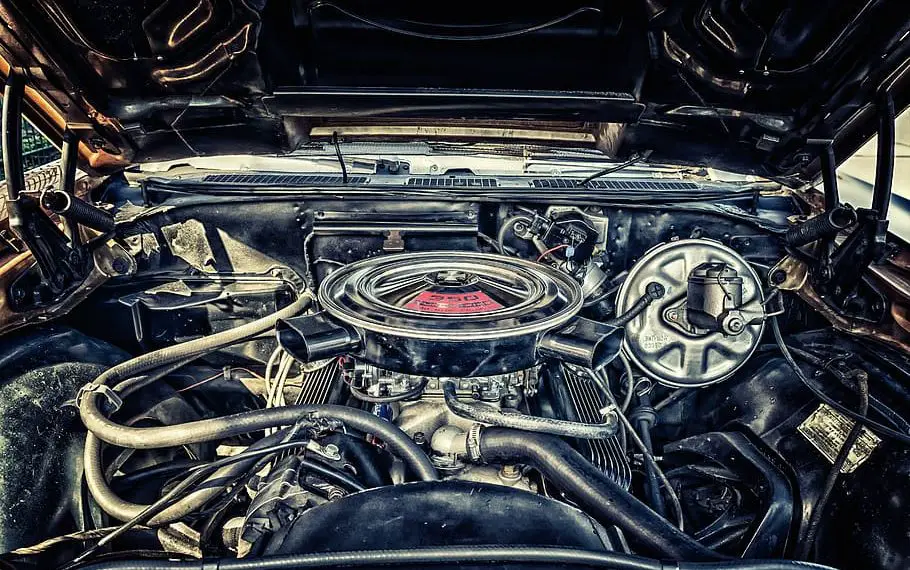Feeling a bit hot under the collar in your ride? It might be more than the summer heat — you could be dealing with weak car AC compressor symptoms. But how would you know? Let’s uncover the mystery.

Table of Contents
Key Factors that Can Weaken Your Car’s AC Compressor
So what turns a healthy compressor into a weak one? There are a few suspects to consider.
Lack of Regular Maintenance
Just like you wouldn’t run a marathon without proper training, your AC compressor needs regular maintenance to stay in tip-top shape. Neglect it, and it can start to show signs of wear and tear.
Contamination in the AC System
Dirty system? Not good. Contamination from debris or moisture can cause significant problems for your compressor. It’s like trying to run in shoes full of sand.
Leakage in the AC System
Leaks in your AC system can lower the amount of refrigerant, causing your compressor to work overtime. It’s like asking your compressor to run a race without enough fuel.
Age and Wear of the Compressor
Old age can take its toll on your compressor, just like it does on all of us. Wear and tear over time can make your compressor weak and less efficient.
Common Weak Car AC Compressor Symptoms
Now that we know what causes a compressor to weaken, let’s get to the meat of the matter: the symptoms. And trust us, they’re not hard to miss.
Reduced Cooling Efficiency
One of the most noticeable symptoms of a weak compressor? Your car just isn’t as cool as it used to be. And we’re not talking about style.
Details on How Inefficient Cooling Occurs
When your compressor isn’t up to par, it can’t circulate the refrigerant as efficiently. It’s like trying to run a marathon with a twisted ankle – you’re just not going to perform at your best.
How to Identify Reduced Cooling Efficiency
So how do you know if your cooling efficiency has gone down? Easy – you’ll feel it. If it takes ages for your car to cool down or if the air blowing out isn’t as cold, you might have a weak compressor on your hands.
Noisy Compressor
Another tell-tale sign of a weak compressor? Noise, and we’re not talking about the sweet purr of a well-tuned engine.
Types of Noises from a Failing Compressor
From strange clunking sounds to high-pitched squeals, a failing compressor can make a symphony of scary sounds. It’s like your car is trying to tell you something’s wrong.
What Causes the Noise in a Weak Compressor
These unnerving noises can be due to a range of issues, from a worn-out compressor clutch to internal damage or even a lack of lubrication. Basically, your compressor’s in pain and it’s letting you know.
Compressor Clutch Not Moving
The compressor clutch not moving is another sign of a weak compressor. And trust us, this isn’t something you want to ignore.
What the Compressor Clutch Does
The clutch on your compressor controls when the AC system cycles on and off. It’s like the conductor of the orchestra – if it’s not doing its job, the whole performance falls apart.
Why the Compressor Clutch Might Not Move
A stuck compressor clutch can be due to several issues, such as electrical faults or a worn-out clutch. If it’s not moving, it’s a sign that your compressor could be on the fritz.
Physical Damage on the Compressor
Last but not least, physical damage to the compressor is a dead giveaway of a weak compressor. And no, it’s not just cosmetic.
Types of Physical Damages
Physical damage can range from visible cracks or leaks to wear and tear on the belt drive. It’s like your compressor’s battle scars – a clear sign of the struggles it’s been through.
How to Identify Physical Damages on the Compressor
You’ll need to pop the hood and take a good look at your compressor. Any signs of leaks, cracks, or a worn belt could be an SOS from your compressor.
Check out these other related articles…
Compressor Sensor Problem: Proven Troubleshooting Solutions
What is the Purpose of a Compressor Speed Sensor? [Answered]
What is Variable Speed Compressor in AC? [Detailed Answer]
How Do You Troubleshoot a Defective Compressor? [Answered]
Why Is My Car AC Compressor Constantly Running? [Answered]
Testing for Weak Compressor Symptoms
Think you might have a weak compressor? It’s time to do some testing. Here’s how.
Professional AC System Diagnostics
The best way to know for sure if your compressor’s weak is to get a professional diagnostic test. It’s like taking your car to the doctor for a check-up.
What Happens in a Professional Diagnostics
In a professional diagnostic, a technician will inspect your AC system and compressor for any signs of trouble. They’ll check for leaks, noise, and any physical damage. They’ve got the tools and knowledge to spot a weak compressor a mile away.
Benefits of Professional Diagnostics
Getting a professional diagnostic not only identifies the problem but also helps prevent further damage. Plus, the pros can advise on the best course of action, whether that’s repair or replacement.
DIY Compressor Testing Methods
Prefer to get your hands dirty? There are some DIY methods you can try to spot a weak compressor.
Common DIY Testing Methods
You can listen for unusual noises, check the cooling efficiency, inspect for physical damage, and see if the clutch is moving. But remember, while DIY testing can point to a problem, it’s always best to get a professional opinion to be sure.
Precautions When Performing DIY Testing
While DIY testing can be handy, it’s essential to take precautions. Always turn off your engine before inspecting your compressor, and don’t touch any components until they’ve cooled down. Safety first, always!